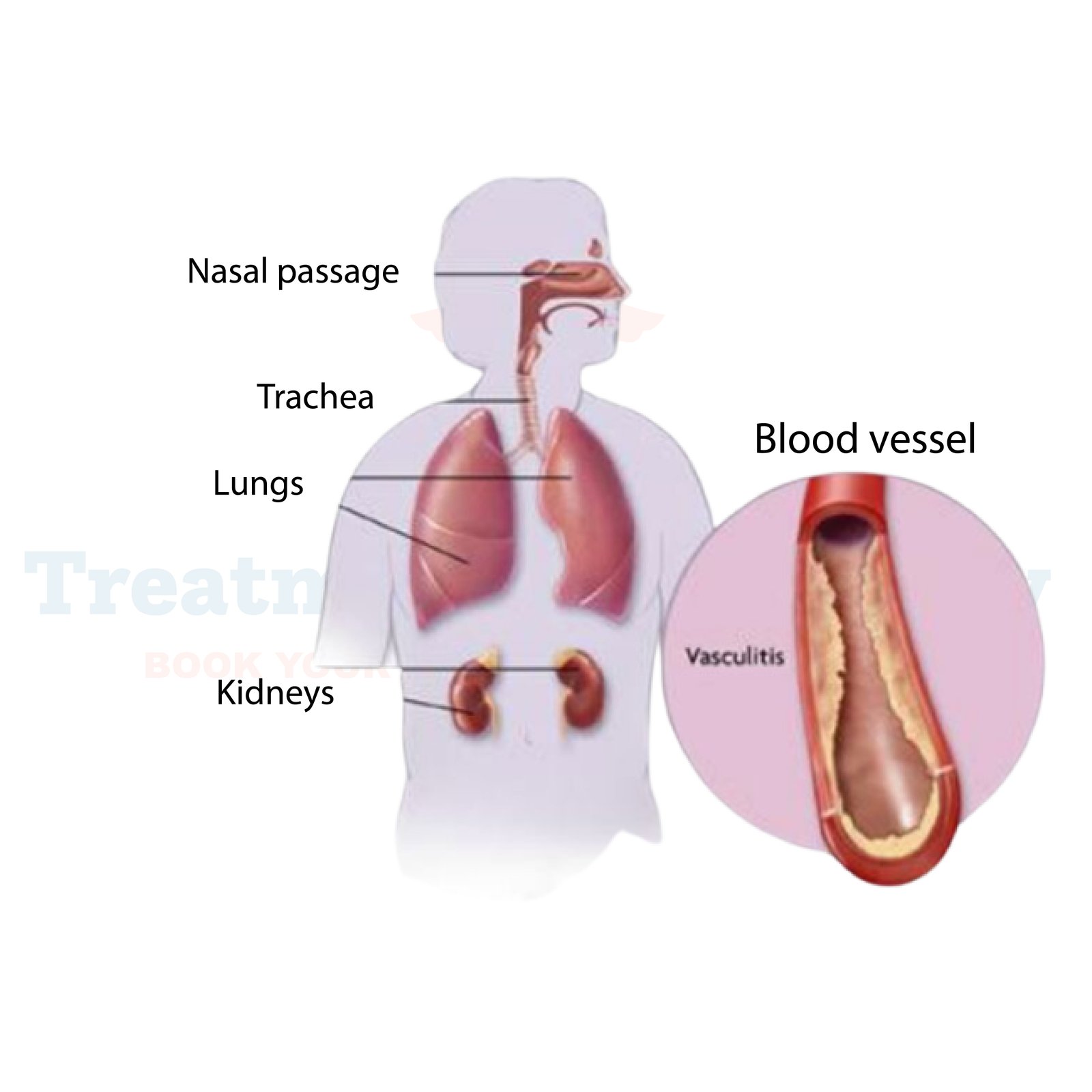Understanding Wegener's Granulomatosis (Granulomatosis with Polyangiitis)
Wegener's Granulomatosis, also known as Granulomatosis with Polyangiitis (GPA), is a rare autoimmune disorder characterized by inflammation of blood vessels (vasculitis).
This condition primarily affects small to medium-sized blood vessels in the respiratory system, kidneys, and other organs.
The exact cause of Wegener's Granulomatosis is unknown, but it's believed to involve a combination of genetic predisposition and environmental triggers.
Side Effects of Wegener's Granulomatosis (Granulomatosis with Polyangiitis)
The symptoms of Wegener's Granulomatosis can vary widely among individuals and may include:
- Respiratory Symptoms: Chronic cough, sinus pain, nosebleeds, nasal ulcers, and difficulty breathing.
- Kidney Problems: Blood in the urine, proteinuria (protein in the urine), and kidney failure in severe cases.
- Joint Pain: Arthralgia (joint pain) and arthritis.
- Skin Issues: Skin lesions, rashes, and ulcers.
- Fatigue: Generalized weakness and fatigue.
- Eye Problems: Redness, pain, and vision changes in some cases.
Untreated Wegener's Granulomatosis can lead to serious complications such as organ damage and failure.
Diagnosing Wegener's Granulomatosis (Granulomatosis with Polyangiitis)
Diagnosing Wegener's Granulomatosis can be challenging because its symptoms mimic those of other diseases. However, several tests can aid in diagnosis:
- Blood Tests: These can detect certain antibodies associated with autoimmune diseases.
- Biopsy: A tissue biopsy, often from the affected organ (such as the lungs or kidneys), can reveal characteristic granulomas and vasculitis.
- Imaging Tests: X-rays, CT scans, or MRIs may show inflammation or damage to organs.
- Urinalysis: Detects abnormal levels of protein or blood in the urine, indicating kidney involvement.
Potential Treatments of Wegener's Granulomatosis (Granulomatosis with Polyangiitis)
Treatment for Wegener's Granulomatosis aims to reduce inflammation, control symptoms, and prevent organ damage. Common approaches include:
- Immunosuppressive Medications: Drugs such as corticosteroids, methotrexate, cyclophosphamide, or rituximab may be prescribed to suppress the immune system and reduce inflammation.
- Biologic Therapies: Newer biologic agents like rituximab target specific components of the immune system to reduce inflammation.
- Plasma Exchange: In severe cases, plasma exchange (plasmapheresis) may be used to remove harmful antibodies from the blood.
- Supportive Therapies: Medications to manage symptoms like pain, high blood pressure, or kidney problems may be necessary.
👉 Contact us for further information and receive a complimentary consultation.


.webp)
 (1).webp)

.webp)
 (1).webp)


.webp)
 (1).webp)

.webp)
 (1).webp)
